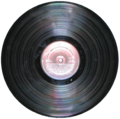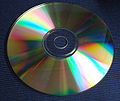 I imagine any of you who have been reading this blog for a time have surmised that I am one of those dreaded elitists, a card-carrying member of that club that is banded with PhD, drives a hybrid car, listens primarily to NPR, and detests the current administration in Washington with real rancor and haughty disdain. If you have not gleaned this information from what I have written, I urge you to reread some of it; the clues are more than obvious.
I imagine any of you who have been reading this blog for a time have surmised that I am one of those dreaded elitists, a card-carrying member of that club that is banded with PhD, drives a hybrid car, listens primarily to NPR, and detests the current administration in Washington with real rancor and haughty disdain. If you have not gleaned this information from what I have written, I urge you to reread some of it; the clues are more than obvious.
Just to cement my status as elite boy prime, I will today admit that I listen almost exclusively to classical music. When I lived in Dallas for 40+ years, our radio station—when it was not NPR, 90.1—was WRR, one of the few city- owned stations around and one that plays classical music exclusively. Now that I reside in LA, the station is KUSC, again an exclusively classical station that pours such music all day into the world, including a live stream worldwide. I am well aware that classical music represents but a tiny sliver of the listening public, but I have long been a piece of that sliver. This is true even though our own son is a composer of film music after having played in various rock bands in his younger days. I love my son, but I would rather be jammed onto a bed of nails than be forced to listen to much of the music he has played for much of his life. I do love to watch him perform—he is superbly talented—but a small diet of his fare is all I can take.
This has been so for most of my life and surely for all of my adult life. I was infected with classical sounds in high school while singing in the two choruses my school offered, Boys’ Chorus when I was a freshman, and the mixed chorus for my final three years. It was then that I first heard Schubert’s “Mass in G,” Faure’s “Requiem,” and Haydn’s “The Heavens Are Telling” from his oratorio “The Creation.” I was not in the church in those days, so had no church choir experiences, but my high school offered a rich musical fare.
In college, that rich fare continued, and when it came to choose between baseball practice and chorus rehearsal, I quickly knew that my diamond abilities would not last beyond my graduation while I might be able to sing for a lifetime. I am still singing at 72, 50 years after graduation, albeit hardly very well anymore. Also, while in college, several roommates introduced me to huge swaths of the classical repertoire. Shostakovich, Mahler, Beethoven, and all the ripe romantics I devoured like a hungry man in the desert. I began to create a large record collection (remember records, those vinyl discs?), and later, after vinyl was usurped by the CD, I sold all my vinyl and replaced many of them with equivalent CD’s. I now wish I had kept my vinyl, since they are now making a comeback, but heaven knows where I would keep them in my tiny LA home.
One of the primary reasons I retired from my professorial post as a teacher of preachers was that I was thoroughly out of date with the culture. I simply am unable to listen to popular music, whether it be hip-hop or soul or punk or hard rock or country (heaven forefend!). I just cannot get my ears around any of it, and because that is so, I have become ill-tuned to the modern culture. Oh, I listen to the news from many sources, and I do watch current movies, but the music of the moment is beyond me. I am not completely a fool; I know millions groove on all those styles, and more, that I named above, but I cannot. And because I cannot, I am not well attuned to the current scene. That would not do as a teacher of those whose role it is to speak clearly to the current scene. Hence, I retired and handed my task to someone far younger and far more aware of what is going on now.
But why am I attracted to this one sort of music? Why does my inner self thrill to the strains of Brahms and Bach, Hanson and Nielsen? Let me clear: it is not because I think this music is the greatest ever written, though I do, but comparing Brahms to the Beatles or Hanson to “Hamilton” is hardly the point. A full orchestra simply sends me to a place that nothing else does. A finely tuned string quartet pushes its way into my heart and titillates my spirit more than anything I can name. Verdi’s stunning “Otello,” even more than Shakespeare’s version, moves me in ways that I can hardly explain.
It has nothing to do with the intricacies of musical theory of which I know very little. I can read music, but analyzing it in detail is well beyond my abilities. Last night, Diana and I watched a DVR of a 1967 performance of Verdi’s “Requiem.” The soloists were among the finest of the last century: Leontyne Price, Fiorenza Cossoto, a very young and relatively thin Luciano Pavarotti, and a sonorous Nicolai Ghiaurov. Both Diana and I have sung this piece, but seeing this classic performance under the appallingly self-absorbed Herbert von Karajan, made our hair stand on end. Ms. Price above the staff, right up to her ringing high C’s, was and is unmatched. I find nothing or no one to compare her to. Thrilling is too slight a word!
I know I have not yet explained why this music is my music. I suppose I cannot. I have many friends about my age who revel in concerts of “Earth, Wind, and Fire” or Aerosmith, or any number of bands that were the tunes of their youth. But not me. I listened to none of them, but Mahler’s “Resurrection” Symphony #2 never fails to lift my flagging soul right up to the throne of God. All right, I accept that I am seen as a dilatant, an elitist of the first stripe. Here I stand; I can do no other. In no way do I wish to deny you what you find to be your music. But now you know something of mine.
(Gustav Mahler) (Images from Wikimedia Commons)












